This Isn’t About Winning
Last week a colleague of mine said, “The capitalist side of me is fighting with the healthcare side of me,” as he described how he was feeling about the Safer at Home restrictions impacting our businesses. I think many of us are feeling that way today and we need to accept that juxtaposition in our belief systems and remind ourselves this isn’t about winning an argument. It’s about saying both sides are right.
Zero-Sum Mentality
A few months back I wrote about the zero-sum mentality. As a reminder, the zero-sum mentality is the false belief that in any given disagreement there is a winner and a loser. If we stay home longer to fight the coronavirus we win, while our businesses suffer. One wins, one loses. If we lift stay at home restrictions, we win while we lose lives.
It’s the idea that if I let your voice be heard in the conversation, I have lost my voice.
Truth is, I’m grateful to not be the one having to make these decisions. There are many angles and facets to all that’s going on around us. I see my kids’ suffering from social isolation. I have friends whose businesses are functioning at 20% of their normal revenue and they aren’t sure how long they’ll last. I know families who have lost loved ones to the Coronavirus and who feel strongly that we have to kick this virus’ butt.
In each of these cases, there are legitimate concerns. My opinion and voice are as important as yours, so how to we veer away from being trapped in the zero-sum mentality of having a winner and a loser?
Here are a couple of conversation skills that will help your voice be heard while also enabling others to share their thoughts and opinions.
Yes, And
Use the phrase “Yes, and.” This improv skill requires taking someone else’s statement, validating it, then adding on a new perspective. If you hear a one-sided argument about this very complicated issue, you can reply, “Yes, you’re right, our healthcare workers are under tremendous pressure, and I also see the impact of social isolation on people.”
“Yes, and” is a powerful diffuser of one-sided arguments. It allows us to acknowledge the other person while adding in new viewpoints.
Identify What You Don’t Want
Identify what you don’t want. As discussions have shut down because of zero-sum tactics, I’ve seen people successfully open the conversation again by restating what everyone wants. It may look like this:
“We don’t want businesses to suffer. In addition, we do want to limit exposure to the virus on behalf of those who are vulnerable.”
Acknowledging what we don’t want makes it clear our intention isn’t to dismiss the other person’s side. It legitimizes both sides and keeps the conversation going.
The Concerns From Each Side
Identify the competing concerns from each side. Often we have two equally important concepts that are competing for top priority. When we can identify what I want and what the other person wants, we often find those items are not mutually exclusive. However, sometimes we both have to give something up to reach a mutually beneficial solution.
For example, I may say, “I don’t have all the answers to what we are going through. I do see the importance of opening the economy and know many who are struggling because they have lost their jobs. I also recognize lives are at stake here. I’d like to explore how to best balance those two concerns – opening jobs and keeping as many people safe as possible. What are our options for doing both to the best of our ability?”
Erasing The Zero From Our Equation
The zero-sum mentality is harmful on many fronts. What we are facing today is amazingly complex. We need to hear all the voices impacted. To do that we start with our own awareness and skill. Ask, how can I move from the default of win-lose to what we all want? How can I open conversations with “Yes, and,” and how can I be clear about what I don’t want to do in this conversation?
Empathy and compassion happen when we put ourselves in someone else’s position. Out of all the things we need today, when we put empathy and compassion at the top of the list, we’ll find that we don’t have winners and losers, we have human beings on the same team working together.
That’s something I can get behind.
Wishing you all the very best as we navigate this together. If you find yourself in a spot where you need an ear to listen or someone you can reach out to, I invite you to contact me. I can think of no greater honor than to walk this journey together to find the support you need during this time.
Vistage chair, keynote speaker, trainer, and consultant, Sarah Gibson, helps organizations leverage the power of communication, teamwork, and diversity to improve engagement and transform teams.
If you are a CEO or know a CEO who would benefit from a peer advisory group, please contact Sarah at Sarah.Gibson@Vistage.com. To inquire about her speaking programs, please visit www.sarahjgibson.com.




Such good practical conversation stems, Sarah. So respectful and a way for all voices to be heard as we navigate these challenging times. Thank you!
Nancy – thanks. as I watch the news or my social media feed, I keep thinking that most of us really want the same thing, however we hear voices in the extreme and it divides us. If instead, we looked to what brought us together, we’d be far better off.